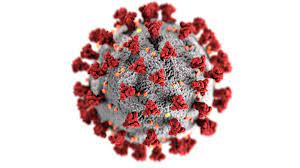The COVID 19 lockdowns during 2020 have made 2021 a very important year for diving businesses to recover revenue, fulfil postponed demand for diver training and build resilience to face possible disruption in the future. During the period of covid controls and social distancing, many dive schools were diligent in implementing measures and this certainly helped diving recover.
Although formal covid control measures may have been removed, it is still possible to contract covid and suffer varying severity of infection. It is also possible to carry and spread covid after vaccination. The new omicron variant is now spreading, with headlines about rapid infection rates.
This creates a need for diving professionals to continue some precautions against covid infection among their teams or customers. Either could cause personal consequences or further disruption to businesses hoping to maximise the end of the 2021 dive season or the start of 2022.
Continuing to guard against covid impact during recreational diving instruction also helps representative bodies (such as APSTO) present an evidence-based case for diving to continue in any future waves, or periods of pandemic restriction. This case for exemption from closure is also strengthened by acknowledged mental health benefits, widespread vaccination and boosters, diving being a mainly outside activity and the now well-documented absence of transmission in well run, covid-aware outdoor diving operations. APSTO is intending to present this case should lockdowns be discussed – backup in the form of visible good practice from dive schools will help greatly.
Previously APSTO has simply emphasised the clear-cut government advice. The situation is now different, with the clear advice having been replaced by individual responsibility for companies and individuals to choose their own covid controls.
Assessment of risks in diving operations, including surface infection risks, is the responsibility of each diving business. However, since the original lockdown, there are now more tools available for dive schools to use in their risk assessment, meaning that measures can be proportionate, targeted and responsive to changing circumstances.APSTO has been discussing the usefulness of various measures to assist dive schools in formulating their own risk assessments and measures to ensure both staff and student safety, plus minimising impacts on diving businesses.
The full advice document can be accessed from this link.
Thank you and best seasonal wishes,
APSTO

